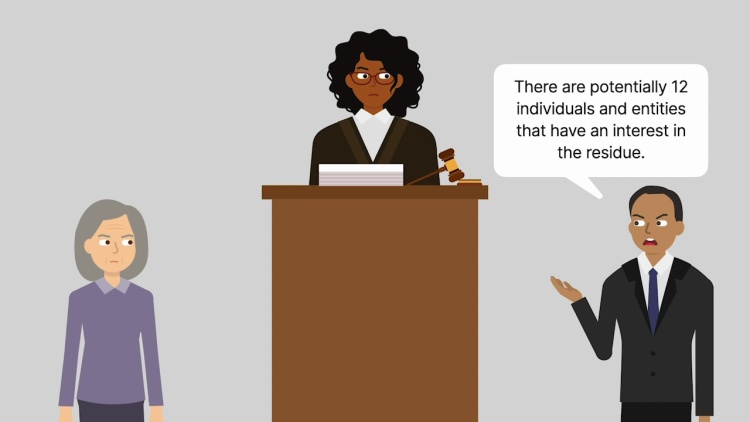Trust of Shire v. Unknown/Undiscovered Heirs
Nebraska Supreme Court
907 N.W.2d 263, 299 Neb. 25 (2018)
- Written by Rose VanHofwegen, JD
Facts
Jennie Shire’s will placed $125,000 in a trust (plaintiff) that paid $500 per month to her daughter for life, then Shire’s granddaughter for life. Shire’s will directed that any trust funds remaining after would be distributed among her heirs and charitable entities. After Shire died in 1948, the trust paid $500 monthly to her daughter for 35 years until her daughter died, then the same amount to Shire’s granddaughter. By 2016, the trust had grown close to $1 million. The trustee petitioned the court to increase the monthly payments, arguing that the value of $500 in 1948 adjusted for inflation would be about $5,000 today. The trustee attempted to identify anyone who might later inherit remaining trust funds and identified 12 individuals and charities. The trustee also asked the court to appoint an attorney to represent any “Unknown/Undiscovered Heirs” (defendants) that the trustee had not identified who might also inherit from the trust. Only the attorney representing unknown or undiscovered heirs opposed increasing the monthly payments to Shire’s granddaughter. The attorney representing six known individual heirs simply asked the court to adjust the monthly payments to an amount that would not jeopardize the trust’s corpus. Neither the seventh unrepresented heir nor the attorney general representing the charities filed briefs. The court refused to increase the monthly payments, reasoning that not all the potential beneficiaries consented, increasing the monthly payments would decrease the remaining trust corpus, and no unanticipated change in circumstances had occurred warranting modification under Nebraska trust law. Shire’s granddaughter appealed.
Rule of Law
Issue
Holding and Reasoning (Funke, J.)
What to do next…
Here's why 911,000 law students have relied on our case briefs:
- Written by law professors and practitioners, not other law students. 47,100 briefs, keyed to 997 casebooks. Top-notch customer support.
- The right amount of information, includes the facts, issues, rule of law, holding and reasoning, and any concurrences and dissents.
- Access in your classes, works on your mobile and tablet. Massive library of related video lessons and high quality multiple-choice questions.
- Easy to use, uniform format for every case brief. Written in plain English, not in legalese. Our briefs summarize and simplify; they don’t just repeat the court’s language.





